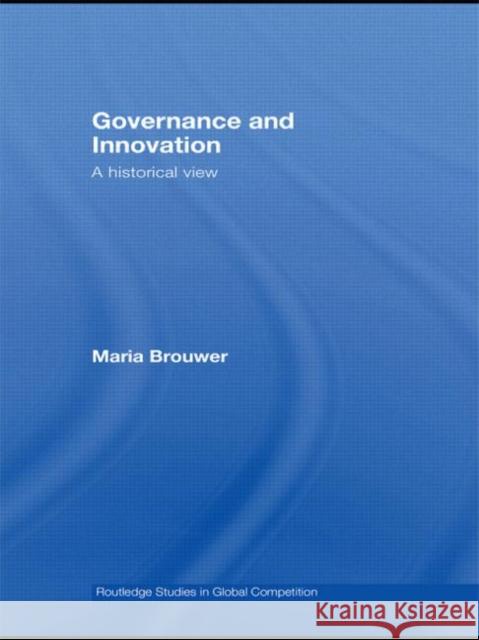Governance and Innovation: A Historical View » książka
Governance and Innovation: A Historical View
ISBN-13: 9780415437059 / Angielski / Twarda / 2008
Governance and Innovation: A Historical View
ISBN-13: 9780415437059 / Angielski / Twarda / 2008
(netto: 218,74 VAT: 5%)
Najniższa cena z 30 dni: 201,44
ok. 16-18 dni roboczych.
Darmowa dostawa!
"This provocative book applies law and finance theory to a wide range of issues bearing on corporate governance and business history. Brouwer's analysis should hold particular interest for students and scholars interested in comparative governance." Joseph A. McCahery, Professor of Corporate Governance and Innovation, University of Amsterdam Center for Law and Economics This book focuses on the relationships between rules of decision-making and economic development, concentrating on the similarities and differences between old and modern modes of governance in both business and politics. Brouwer uses concepts such as uncertainty and expectations to analyze political and corporate governance models from an economic theoretical perspective. Brouwer analyzes the emergence of organizations and institutions conducive to commerce and growth and the relationship with political organization in both past and present in order to improve our understanding of economic development. The author shows how maritime trade spawned many organizational innovations in the past that still feature modern innovative enterprise. The author highlights how political governance stimulates or impedes innovation, taking issue with existing legislation on bankruptcy and corporate governance. The effects of political governance on innovation are modelled to analyze how competition for novelty enhances the value of human capital.











